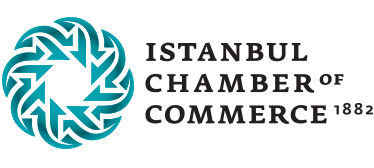Medical Education Abroad
Nowadays obtaining medical education in English abroad is gaining popularity. Medicine is a versatile field that can be studied anywhere around the world. Medical faculties are among the most important departments that attract the same level of interest in almost every country around the globe. Especially the high level of education and career advantages offered to students in many universities abroad have led to an increase in demand for these institutions both in America and Canada and in many countries of Europe. However, the fact that the application procedures and the level of education are quite difficult also provides benefits to the graduates of globally branded medical faculties. In fact, studying in these departments means having special knowledge, skills and competences. Although many universities, especially in Europe, still provide medical education in the native language of the country in which they are located, the fact that there are highly reputable universities that provide medical education also in English; It is a positive factor for students from different cultures to determine their education target abroad. Prospective doctors gain self-confidence, discipline and maturity as part of the process of living in a foreign country. From this point of view, international students attract more attention in the labor market thanks to their different backgrounds and skills.
Over the last 20 years, medicine taught in English has become increasingly popular in Europe for students wishing to study in this field. On the whole, the United States, Canada, Australia, New Zealand, United Kingdom and similar English speaking countries are the ones with the highest number of degrees and education opportunities in English in the field of Medicine. In addition, eastern European countries are preferred, especially in terms of more affordable education and living expenses, and therefore, teaching in English becomes an inevitably important for universities here. The Czech Republic, Italy, Lithuania, Latvia, Croatia, Cyprus, Poland and Hungary are also among the countries that offer students the opportunity to receive medical education in English at acceptable international standards.
Universities Offering Medical Education in English Abroad
If the preliminary search for medical institutions is narrowed down to Europe, one can encounter many options considering the different teaching styles, cultures and sometimes even entry requirements. The most famous universities offering medical education taught in English in Europe can be listed as follows:
- Charles University: The Faculty is recognized as the most prestigious medical school in the Czech Republic and one of the foremost in Europe.
- Palacky University: Palacky University in Olomouc was founded in 1573 as a public, academic institution and is one of the leading medical schools in the Czech Republic.
- Humanitas University: Humanitas University is the most prominent independent international School of Medicine of Italy, founded within the Humanitas Research Hospital, a center known all over Europe for its excellent healthcare and advanced research.
- Lithuanian University of Health Sciences: The Lithuanian University of Health Sciences was established in Kaunas in 1922 as part of the local university. In 1998, the Faculty of Medicine acquired independent academic status, separated from the University of Kaunas. Today, it has become one of the top medical schools in Lithuania under the name “Lithuanian University of Health Sciences.”
- Vilnius University: Founded in 1579 in Lithuania, Vilnius University is one of the oldest universities in Central and Eastern Europe. Founded in 1781, the Faculty of Medicine of the University consists of more than 20 units and is considered one of the largest and the most important medical schools.
- University of Latvia: The Faculty of Medicine of the University of Latvia was established on 28 September 1919 and was renovated on 29 December 1997. The programs taught at the faculty as medicine, nursing and pharmacy are very contemporary, and their development is based on the latest scientific data.
- University of Zagreb: Founded in 1669, the University of Zagreb is the largest and oldest academic institution in Croatia and Southeast Europe. It currently consists of 30 faculties and 3 art academies and is hosts more than 70,000 full-time undergraduate and graduate degree students.
- European University Cyprus: Modeled on EU Directives and other international health care standards, this institution has been awarded two prestigious international awards by Crestron International Awards in nominations of “Best Educational Facility” and “Best Medical Solution.”
- University of Nicosia: The university, which meticulously offers medical education in English by emphasizing the development of critical thinking and learning skills with its special studies, is also involved in European research projects.
- Poznan University: Poznan University of Medical Sciences was established in 1919 as part of the University of Poznan and was transformed into an independent academic institution in 1951. Poznan University of Medical Sciences is regularly ranked among the best medical schools in Poland and is currently recognized as the best medical school.
- University of Szeged: The legacy of the University of Szeged began in the 16th century when the Prince of Transylvania founded the academic institution. The Faculty of Medicine was established in 1775. The University of Szeged includes one of the leading medical schools of Hungary. The Faculty of Medicine and Dentistry became an independent institution in 1951 and followed by Faculty of Pharmacology in 1957.
What are the Application and Admission Requirements for Studying Medicine in English in Europe?
European universities teaching Medicine in English are located in more than 40 countries. Each of these universities has its unique entry requirements. The only common admission criterion they all share is English language proficiency. Apart from this, student candidates may be required to take an exam in the fields of Biology, Chemistry, Physics or Mathematics. Some exams are simple multiple-choice questions, while others may be open questions or both. However, some universities take high school science course grades into account. While entry requirements vary all the time, the most common expectations for medicine in Europe are:
- BTEC, GCSE or equivalent high school diploma,
- High grades in Chemistry, Biology, Mathematics and Physics,
- English language proficiency,
- Entrance exams in Biology, Chemistry and English (Online test options are also available),
- Online interview with the institution to understand the motivation for choosing a profession,
- Letter of recommendation or personal statement (optional),
- Passport presentation and
- Payment of entrance fees that can vary between 20 Euros and 200 Euros and above.
Recognition of Medical Degrees and Equivalence Conditions
Some exams administered by different countries helps getting Equivalency with International Exams to become a ‘Medical Doctor.’ These can include:
- USMLE-Step 3,
- PLAN-Part 2,
- AMC-Clinical Examinations,
- MCCQE-Part2 and
- Arztliche Prüfungen (3 AP, Staats Examen).





